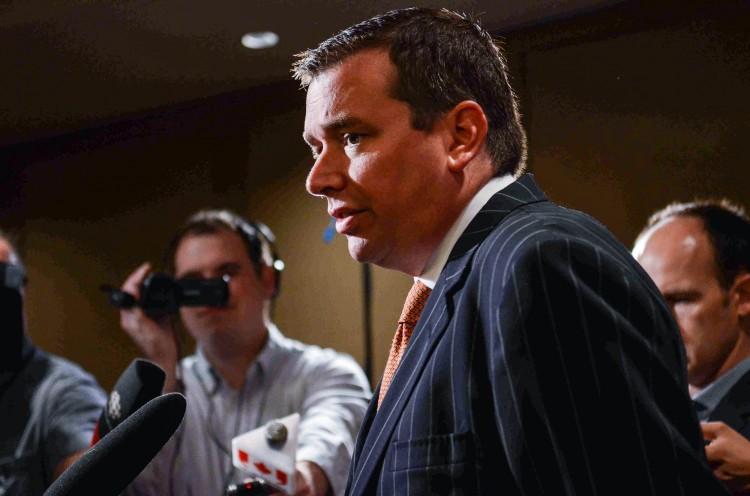TORONTO—Corporate Canada is getting some flak about its lack of investment in innovation and capital improvements from a growing chorus that includes Finance Minister Jim Flaherty and Bank of Canada Governor Mark Carney.
Industry Minister Christian Paradis spoke at an Economic Club of Canada breakfast on Tuesday about the government’s efforts to spur innovation, but reporters were more interested in the status of controversial takeovers, especially that of Calgary-based Nexen by the China National Offshore Oil Corporation (CNOOC).
Paradis confirmed the next day that the deal was under review.
“CNOOC has filed an application for review of its proposed acquisition of Nexen under the Investment Canada Act and I am conducting a review of the proposed investment,” he said in an email.
In his remarks Tuesday, Paradis touted the government’s economic success in an oft-repeated formula. While the global economy is shaky, “Canada benefits from a strong and stable government,” a great credit score, and a plan to put the economy on ever stronger footing, he said.







